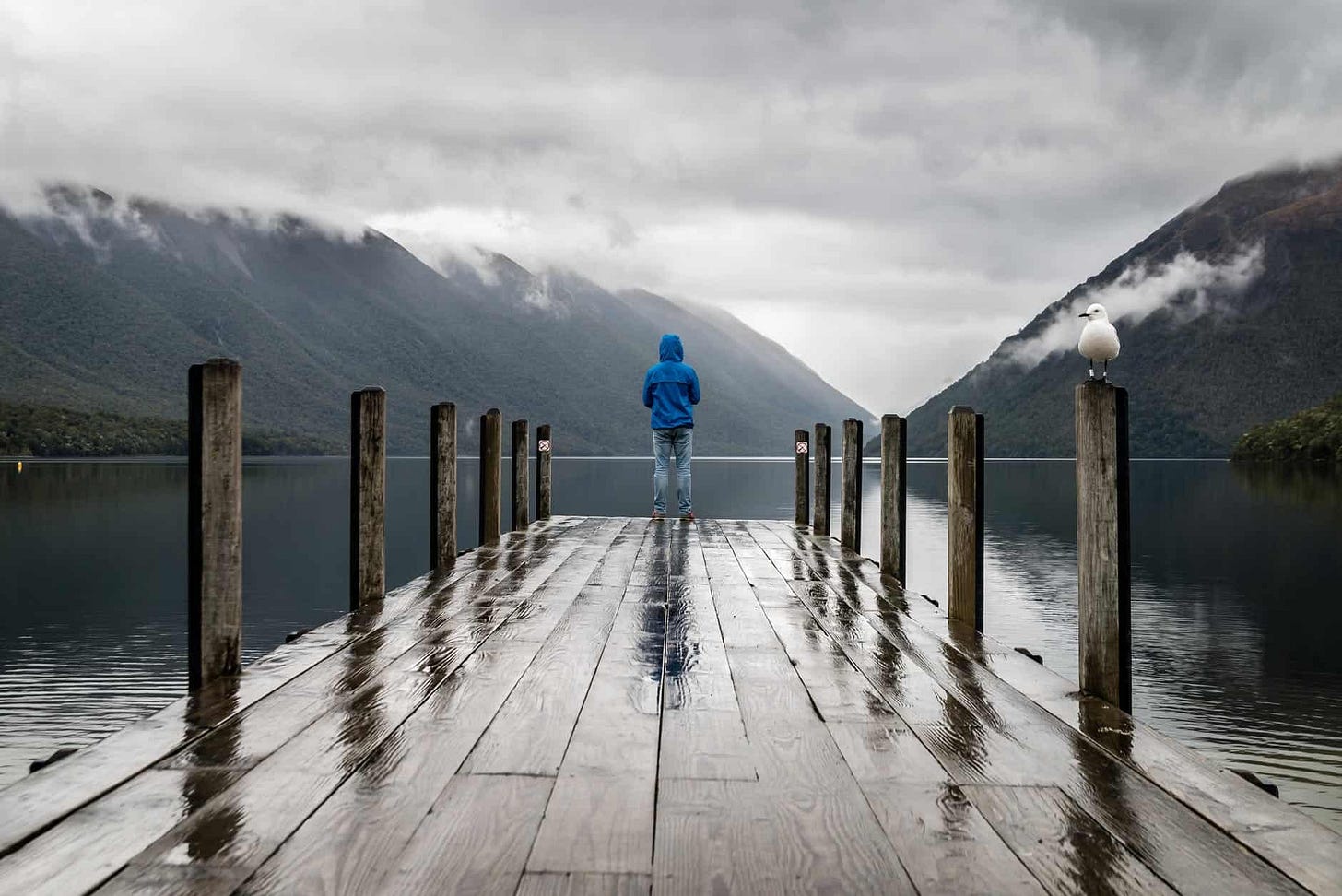Battling the loneliness epidemic
Loneliness is everywhere and nowhere. It's made worse by social media. Fighting it starts with one thing.

Phil Rosen

Issue #10
|
April 4, 2022
|
Reading time:
6 mins
|

Happy Monday. Welcome to the 10th edition of Tip Jar. I’m proud to say we’ve hit 1,400 subscribers. I appreciate every single one of you — thanks for being here.
Today we’re breaking down the growing, startling loneliness epidemic — and what to do about it.
Here we go.
Smart, curious people have smart, curious friends. Share this newsletter.
It's everywhere and nowhere
A Harvard report found that 61% of young adults feel “serious loneliness.”
A psychology professor at Brigham Young University found that loneliness can impart the same damage to young peoples’ health as smoking 15 cigarettes a day.
This researcher — Julianne Holt-Lunstad — testified before the US Senate that the loneliness problem, while psychological, was also a structural issue that discouraged even talking about loneliness.
“Needing others is viewed as a weakness, rather than a conceptualization of interdependence — that we can rely on others and they can rely on us,” Holt-Lunstad said.
She proposed regular “social-connectedness interventions,” among other things, to be implemented in routine check-ups as a way to mitigate anxiety and depression in young people.
Emphasizing human connection as a public health initiative, Holt-Lunstad said, can usher in a culture that allows people to be okay with checking in on themselves and others without feeling needy.
But there’s more than just a “feeling” that needs to be addressed.
Other studies show that lonely people are 59% more likely to lose the ability to perform everyday tasks, and are at a far higher risk of cardiovascular disease, obesity, depression, and dementia.
Social media has made it easier than ever for people to “stay in touch,” yet the immediacy of it has diminished the depth of each connection.
It can trick us into believing our lives have plenty of meaningful relationships holding them together.
But our Instagram followers and Facebook friends aren’t so much real “connections,” as much as an illusion of community.
Thirty years ago, Oxford anthropologist Robin Dunbar came up with “Dunbar’s number,” the idea that people can optimally maintain a maximum of 150 stable relationships.
Beyond that, things fall apart. As a group of individuals grows, it becomes less intimate.
But the internet has supercharged this, ignoring the wisdom of Dunbar’s number.
Data tells us the result has been widespread loneliness — which the COVID-19 pandemic exacerbated further.
Building a consistent sense of self
While loneliness can be a symptom of being physically isolated, a more insidious consequence is the sense of a fragmented self — severe isolation caused by the severe complexity of our lives.
Most of us reveal different pieces of ourselves to different people. The person you are in the classroom, for example, will be different from who you are on a first date, at a careers fair, or with your family.
Loneliness can stem from this fragmented sense of self. The more habitual it becomes to share only fragments at a time, the more difficult it is to reconcile all your identities into something whole and authentic.
Each of us are pulled constantly in different directions, but it can help to start noticing who you are in each context.
Authenticity means discovering which “self” of yours is truly you.
Paradoxically, that means making time to observe who you are when you’re alone. In other words, find out who you are when no one’s watching.
Initiating this process is one way to combat the growing problem of loneliness, on an individual level.
Who are you when you’re free from the expectations of others? Shedding inauthentic layers can bring a more integrated self to the surface.
Gradually, each separate slice of you could resemble one another more and more. Paying more attention to this can allow your sense of self to grow more consistent across relationships and places.
Combating loneliness is a complicated, uphill task. But maybe you can just start with two words: Be yourself.
— Phil
Follow me:


Tip Jar Recs
Something awesome: Amazon doesn't deliver to the middle of the ocean, so island locals in French Polynesia do it themselves. (Rest of World)
Something different: The changes in healthcare and patients one doctor observed after 30 years of practice. (The Guardian)
Something encouraging: The story of an imprisoned artist, the couple who saved his life, and the extraordinary gift he gave in return. (The Atavist Magazine)
Sign up for Tip Jar if you haven’t already, and feel free to share this with a friend.
You can read this newsletter online here. You can read last week’s edition here.
Feedback? Reply to this email, or message me on Twitter or Instagram.
Photo by Gabriela Palai on Pexels.com




